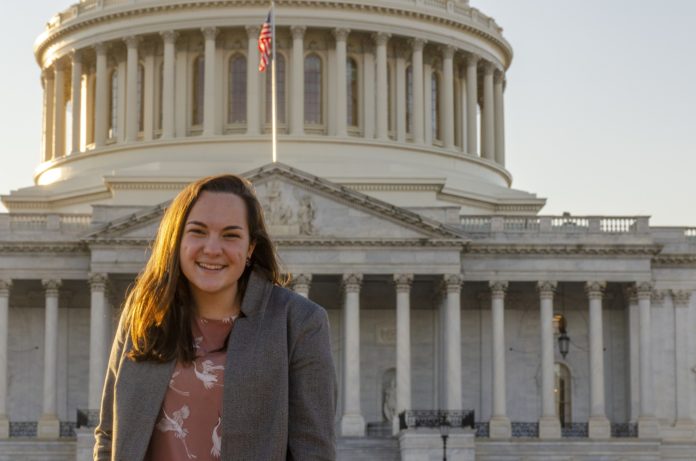
By Sophie Acebo | Reporter
Two members of the Diana R. Garland School of Social Work completed ground breaking research into food insecurity among teenagers in Waco.
Austin senior Ana O’Quin and Dr. Stephanie Boddie, assistant professor of church and community ministries, conducted a semester-long research project that is now published in The Center for Public Justice, a Christian-rooted organization devoted to public policy and social justice.
O’Quin and Boddie’s research focuses specifically on how to better governmental policies, like the Supplemental Nutrition Assistance Program (SNAP), put in place to help people have access to food.
“Our research is about teen food insecurity and is built around policy recommendations for SNAP and for society to better support food-insecure teens,” O’Quin said.
O’Quin’s time as a Young Life leader is what inspired her to pursue this particular research with help from Boddie.
“I’m a Young Life leader at a local high school, and seeing the ways that the teens I walk with in life face food insecurity daily inspired me to focus on this issue,” O’Quin said. “Dr. Boddie was the faculty member that encouraged me to apply to the program, the Hatfield Prize, that gave me the opportunity to conduct the research.”
Boddie met O’Quin during her first semester at Baylor and said that she knew O’Quin would succeed in pursuing an opportunity in research.
“I encouraged Ana to apply for the research prize,” Boddie said. “I was sure she would excel working on a research project. I did not know she would decide to study food insecurity and ask me to serve as her adviser.”
When beginning the research, O’Quin started by reading a variety of journal articles, many of which Boddie sent to her, and then started a focus group to hear real-life experiences from food-insecure teens.
“At first, much of my work was built around reading journal article after journal article,” O’Quin said. “The next portion of my research was based on a focus group that I conducted with five teens to hear about their experiences with food insecurity and their ideas to combat it.”
A 10-question survey was also sent to community leaders in Waco. They received 19 responses.
The results from their research matched with other published research on food insecurity among teenagers, finding that many outside factors contribute to the struggles they face daily.
“Like these studies, our research found teens discussed how they had to grow up prematurely to assist their parent or parents to feed their siblings,” Boddie said. “The stigma associated with food insecurity made it difficult for them to ask for food or other help,” said Boddie.
They also found that these teenagers facing food insecurity are at high risk to engage in “risky behaviors” to receive food, such as stealing, and that they may not do well in school.
O’Quin said that she made recommendations to help solve this problem and end the stigma surrounding it.
“My main recommendation to support teens was to listen to the voices of the teens themselves in communities,” O’Quin said. “Other recommendations included increased funding for SNAP, re-assessing SNAP benefit sizes, increasing strategic collaboration in communities and creating innovative programs that reduce the kind of stigma teens feel about SNAP.”
After they finished their research, they had the opportunity to present their findings as one of the breakout speakers at Baylor’s Hunger and Poverty Summit, which took place October 2 through 4.
O’Quin said she hopes that their research can help different communities pay attention to the issues that are affecting these teenagers.
“I hope it will encourage community leaders and members to listen to the voices of teens in our community, and will play a role in highlighting this often forgotten population,” O’Quin said.
Boddie also said she hopes it will bring awareness to leaders in Waco and bring change in better policies to help these teens.
“We look forward to opportunities to share this research with community and faith-based leaders as well as government officials interested in expanding existing food assistance, employment and other related programs to better address the needs of teens,” Boddie said.
When it comes to starting research as a student, Boddie said she recommends going after a topic you would love to study.
“For many students, research can be intimidating,” Boddie said. “Let your passion be your guide.”
The published research is located online through the Shared Justice page.





